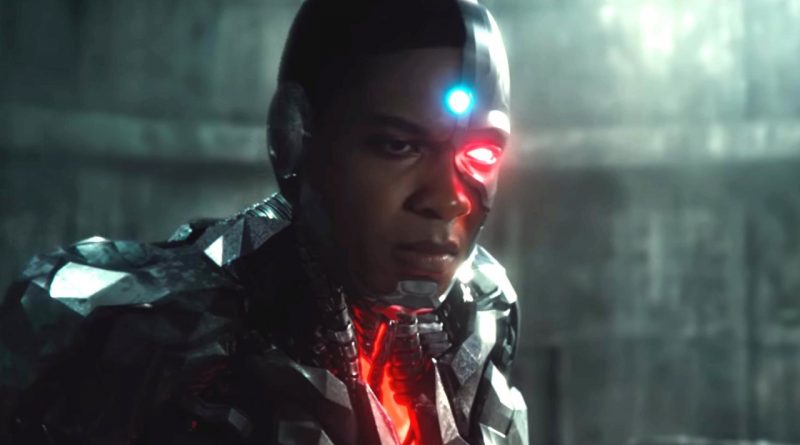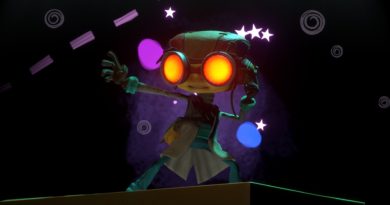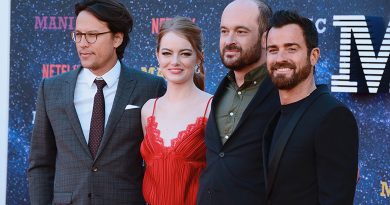Why Ray Fisher’s Cyborg is the Snyder Cut’s Biggest Improvement
Besides Henry Cavill’s upper lip, what I found the most baffling about 2017’s Justice League was the handling of Cyborg’s character. The character, as written, seemed to swing wildly across various archetypes, having no clear motivation or clearly defined traits. Ray Fisher‘s performance was equally confused, almost unsure who he was supposed to play. Of all the things that the Synder Cut cleaned up, this was perhaps the most critical.
In the first half of Justice League, Cyborg is written as an emo sad-boy, full of angst because no one understands him and he hates his new cybernetic body. While the film is mercifully free of Frankenstein references, the dialogue has plenty of exchanges that go along the lines of:
Silas Stone: Be careful son. There’s monsters out there.
Cyborg/Victor Stone: There’s a monster in HERE, dad.
This characterization is absolutely hilarious, but it does fit the somewhat more serious and dramatic tone that Snyder was going for that is present in the first half of the movie. However in the second half, where much of Wheedon’s work came in, Cyborg transforms without warning into a booya-ing dude-bro. Wheedon seemed so concerned with making Justice League “fun” he seemed to have forgotten about Cyborg and how the character was written for the first half.
A New Protagonist
This changes in the Synder Cut. While Cyborg still acts like an emo teenager, his internal conflicts are fleshed out much more. His angst now has clear motivation with the addition of a more fully developed backstory. He was a promising athlete and a bit of a mama’s boy whose scientist dad was never around. In one night he lost his life and his mother in a car crash and his dad turned him into a machine in order to keep him alive. Cyborg remains serious and angry throughout the film, but his feelings are now grounded in tangible experiences. He has to learn to accept himself and a life he doesn’t want.
Justice League, both the theatrical and Snyder versions, is an ensemble film with all its characters having relatively equal importance. What makes Cyborg special in this context is that he is the only character who goes through any sort of change, making him the closest thing the film has to a protagonist. He begins the movie as a self-hating man with a death wish, broken and alone. Over the course of the story he learns about himself, his new powers, and makes friends among the other superheroes, finishing the story having healed his inner psychological wounds, now ready to save the world and be a superhero in his own right. This character change is so important, in fact, that it is what allows Cyborg to save the day in the end. It’s a surprisingly well written and well thought out arc and it’s brought to life very effectively by Ray Fisher’s performance. This arc, however, is completely absent from the theatrical version and is only in the Snyder Cut.
The Controversy
Headlines for the past year have been dominated by the controversy surrounding Ray Fisher’s allegations of impropriety toward Warner Brothers and Joss Whedon. It is still unclear what the allegations are and if they involve any sort of discrimination or workplace harassment as many of the resulting articles seem to imply. However I wouldn’t be surprised if Whedon and the studio’s handling of Cyborg is a big component of Fisher’s discontent.
The cast of Justice League is massive and overflowing with well-known stars, the major exception being Ray Fisher who was an unknown theater actor prior to playing Cyborg. While the Snyder Cut is not a great movie, that version of Justice League would have been Fisher’s big break, and could have vaulted him into a level of stardom and success that he could parlay into more opportunities down the line in his career. For Wheedon and the studio to come in later and mangle the movie like they did, excising most of Fisher’s best work, it must have felt like an enormous insult and a career-killing move.
It’s too early to say whether the damage has been done or if the Snyder Cut will jumpstart Fisher’s career as he had originally hoped, but it is nice to see the man get his due and watch him be the star he was meant to be from the get-go. Audiences have focused on the film as vindication for Zack Snyder’s vision, but it is perhaps more-so vindication for Ray Fisher and Cyborg.




